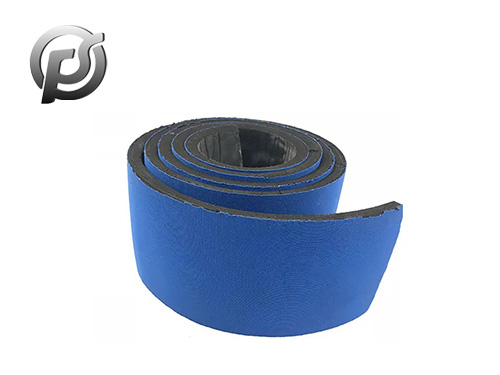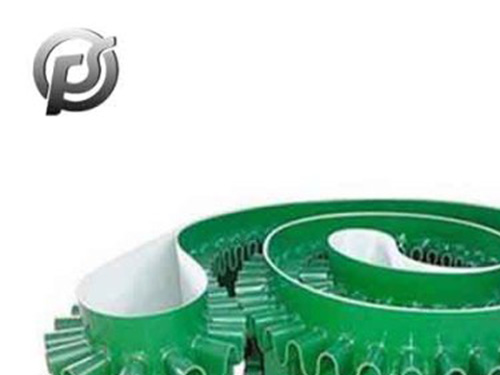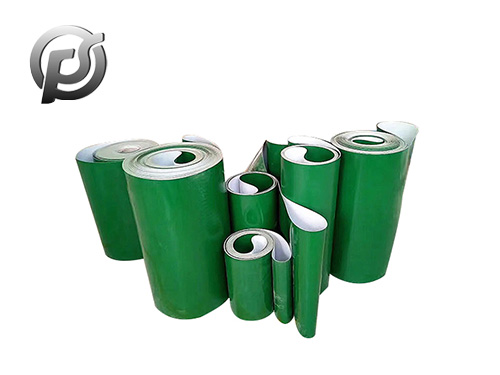A
PE conveyor belt typically refers to a conveyor belt made from polyethylene (PE), which is a type of plastic. Polyethylene is a versatile polymer known for its low cost, durability, and chemical resistance. Conveyor belts made from PE are commonly used in various industries for material handling and transportation of goods. Here are some key features and applications of
PE conveyor belts:
Features:
Chemical Resistance: Polyethylene is resistant to a wide range of chemicals, making PE conveyor belts suitable for industries where exposure to chemicals is a concern.
Abrasion Resistance: PE conveyor belts can withstand abrasion, making them durable and suitable for conveying materials in industries with abrasive conditions.
Low Friction: These belts often have low friction characteristics, facilitating smooth and efficient material movement along the conveyor.
Lightweight: Polyethylene is a lightweight material, which contributes to the overall lightweight nature of the conveyor belt. This can be advantageous in reducing the load on the conveyor system.
Flexibility: PE conveyor belts can be flexible, allowing them to conform to the shape of the conveyor system. This flexibility can be beneficial in certain applications.
Low Cost: Polyethylene is a cost-effective material, and as a result, PE conveyor belts are often more affordable compared to belts made from other materials.
Applications:
Food Industry: PE conveyor belts are used in the food industry for the transportation of food products. They are chosen for their hygienic properties, easy cleaning, and resistance to certain food-related chemicals.
Packaging Industry: Conveyor belts in packaging plants often utilize PE material due to its resistance to wear and tear, as well as its ability to handle various packaging materials.
Agricultural Industry: PE conveyor belts can be used in agricultural settings for tasks such as moving harvested crops or transporting soil and other agricultural materials.
Material Handling: These belts find applications in general material handling industries where goods or products need to be transported within a facility.
Chemical Industry: Due to their chemical resistance, PE conveyor belts are suitable for conveying materials in the chemical industry where exposure to various chemicals is common.
Recycling Facilities: PE conveyor belts are used in recycling plants for the transportation of recyclable materials.
It's important to note that the specific design and characteristics of a PE conveyor belt may vary based on the manufacturer and the intended application. When selecting a conveyor belt, factors such as the type of material being transported, environmental conditions, and load capacity should be considered to ensure optimal performance.

 PE Conveyor Belts: Characteristics, Applications, and Advantages
PE Conveyor Belts: Characteristics, Applications, and Advantages
 Stone Conveyor Belt: Enhancing Efficiency and Productivity in Material Handling
Stone Conveyor Belt: Enhancing Efficiency and Productivity in Material Handling
 Optimizing Operations with PE Conveyor Belts: Durability, Efficiency, and Versatility
Optimizing Operations with PE Conveyor Belts: Durability, Efficiency, and Versatility